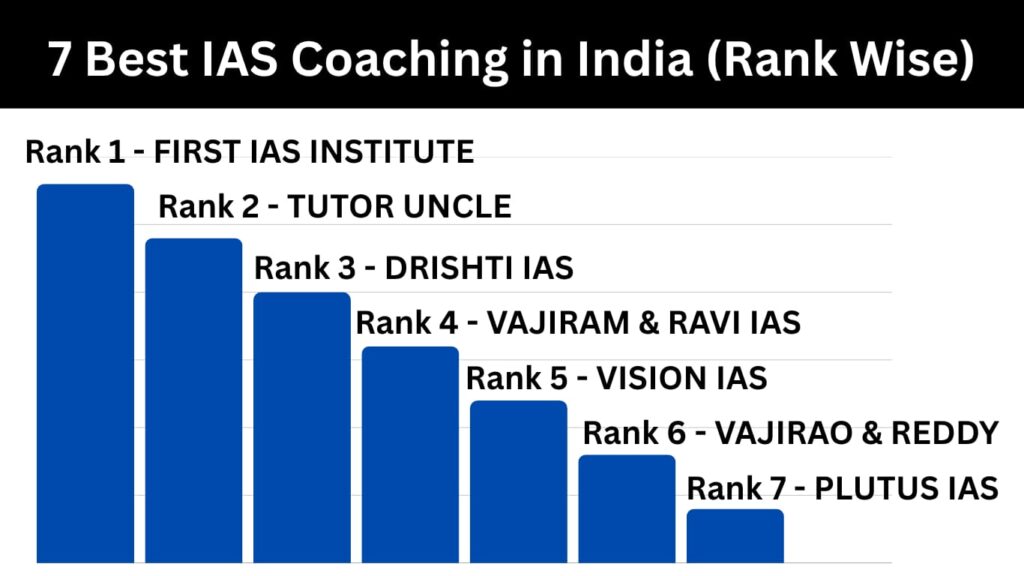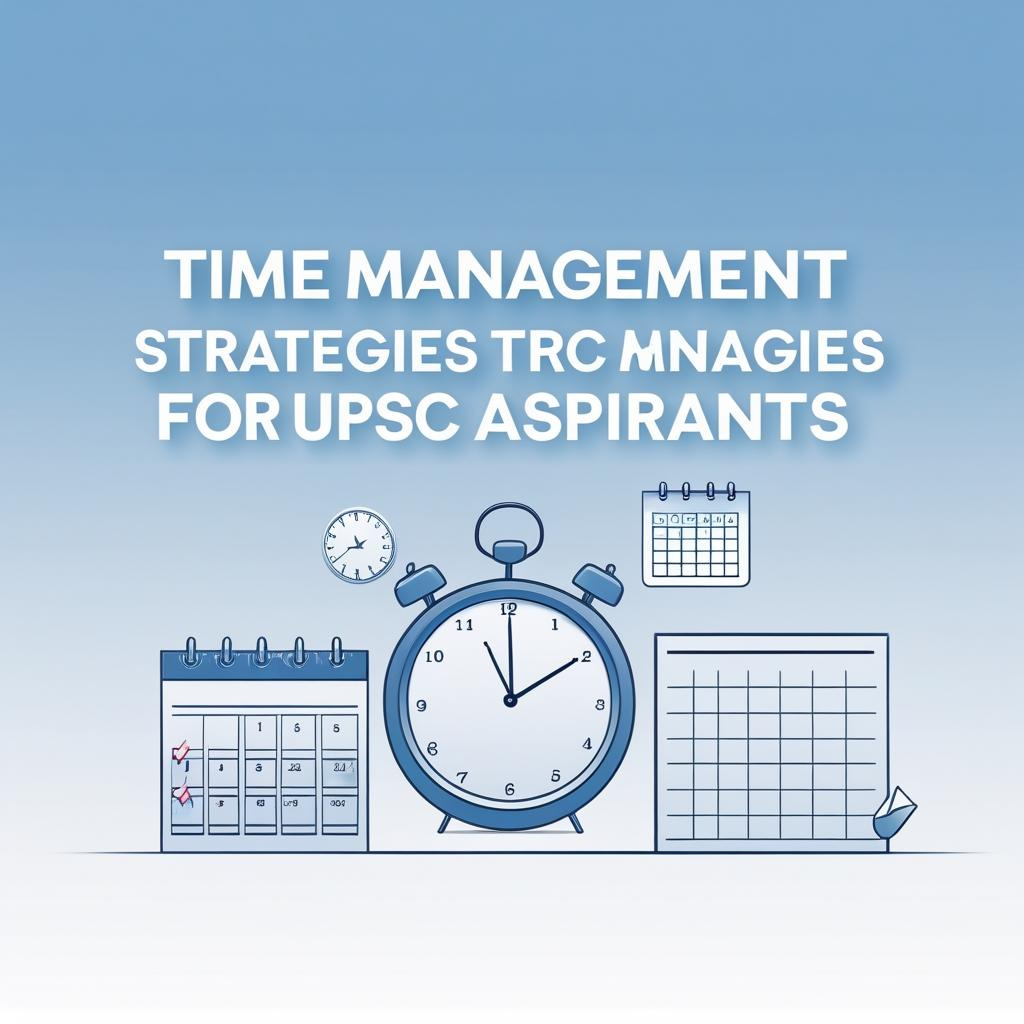1. Introduction
Time is the most valuable resource for a UPSC aspirant. With a syllabus that spans history, geography, polity, economics, ethics, and current affairs, managing time efficiently is crucial for success. Many aspirants fail, not due to lack of knowledge, but because of poor time allocation and ineffective study schedules. This blog will outline proven time management strategies, tailored for UPSC Civil Services preparation, in a point-wise chronological manner.
Read More : 7 Best IAS Coaching in India for Hindi Medium
2. Step-by-Step Time Management Approach
1: Understanding the Syllabus and Exam Pattern
- Why? Without knowing exactly what to study, time gets wasted on irrelevant topics.
- Action Points:
- Read the UPSC syllabus for Prelims and Mains multiple times.
- Highlight overlapping topics to avoid duplication.
- Understand weightage by checking previous years’ question papers.

2: Setting Clear Goals
- Why? Vague preparation leads to inconsistent progress.
- Action Points:
- Set long-term goals: e.g., complete the first syllabus coverage in 6 months.
- Set short-term goals: e.g., finish Polity by next Sunday.
- Use the SMART method (Specific, Measurable, Achievable, Relevant, Time-bound).
3: Creating a Realistic Study Timetable
- Why? A timetable provides structure and reduces decision fatigue.
- Action Points:
- Allocate 6–8 hours daily for full-time aspirants.
- Divide the day into blocks:
- Morning: New topics (fresh mind)
- Afternoon: Revision and note-making
- Evening: Practice questions and current affairs
- Keep a buffer of 1–2 hours weekly for spillover topics.
4: Prioritising Subjects and Topics
- Why? Not all topics have equal importance.
- Action Points:
- Focus first on high-weightage subjects like Polity, Modern History, Geography, and Environment.
- For Mains, prioritise Ethics, Essay, and Optional early.
- Leave less-weightage topics for later phases.
5: Daily and Weekly Planning
- Daily Plan:
- 3 hours: Static subjects (e.g., Polity, Geography)
- 2 hours: Optional subject
- 1 hour: Current affairs (newspaper + monthly magazine)
- 1–2 hours: Answer writing / MCQ practice
- Weekly Plan:
- Review progress every Sunday.
- Adjust schedule based on backlog.
6: The 50-10 Rule (Focused Study)
- Why? UPSC requires deep focus, not just long hours.
- Action Points:
- Study for 50 minutes, then take a 10-minute break.
- Avoid distractions like mobile phones during study blocks.
7: Integrating Current Affairs into Study Plan
- Why? Current affairs are dynamic and need daily attention.
- Action Points:
- Read The Hindu or Indian Express daily.
- Make micro-notes from reliable sources.
- Link current events to static topics (e.g., linking a new environmental policy to Environment syllabus).

8: Using Test Series for Time Management Practice
- Why? Exam-day time pressure can be overwhelming.
- Action Points:
- Join a good Prelims Test Series for MCQ solving speed.
- Practice Mains answer writing within 7–8 minutes per question.
- Simulate exam conditions at home.
9: The Revision Loop
- Why? Without revision, retention drops significantly.
- Action Points:
- First Revision: Within 7 days of studying a topic.
- Second Revision: Within a month.
- Third Revision: Before exams.
- Use the Active Recall Method instead of passive re-reading.
10: Balancing Study with Rest
- Why? Burnout reduces efficiency.
- Action Points:
- Ensure 6–7 hours of sleep daily.
- Exercise for at least 20–30 minutes.
- Schedule a hobby break to refresh your mind.
3. Common Time Management Mistakes to Avoid
- Overloading the daily schedule with unrealistic goals.
- Ignoring revision in the rush to complete new topics.
- Spending excessive time on one favourite subject.
- Relying solely on coaching schedules without personalising the plan.
Read More : 10 Best IAS Coaching in India
4. Final 30-Day Time Management Plan Before Prelims
- First 15 Days: Intensive revision of static and current affairs.
- Next 10 Days: Full-length mock tests every alternate day.
- Last 5 Days: Only light revision and mental rest.
5. Conclusion
Time management is not about studying longer—it’s about studying smarter. UPSC rewards consistent, focused effort over months and years. By understanding the syllabus, setting realistic goals, prioritising topics, and maintaining a strict revision schedule, any aspirant can maximise productivity and improve their chances of success.
Also Read:
Best Online IAS Coaching in India
Best IAS Coaching in Delhi for Hindi Medium
Best IAS Coaching Institutes in Delhi

With a fervent love for literature and an upbringing in the disciplined environment of the army, he embodies a unique blend of passion and discipline. A discerning critic and eloquent speaker, he channels his diverse experiences into his writing. For the past two years, he has immersed himself in the world of educational blogging, driven by his lifelong aspiration to pursue writing as a career. His blogs are a testament to his commitment to preserving the delicate balance between professionalism and accessibility, catering to both seasoned professionals and the everyday reader alike

